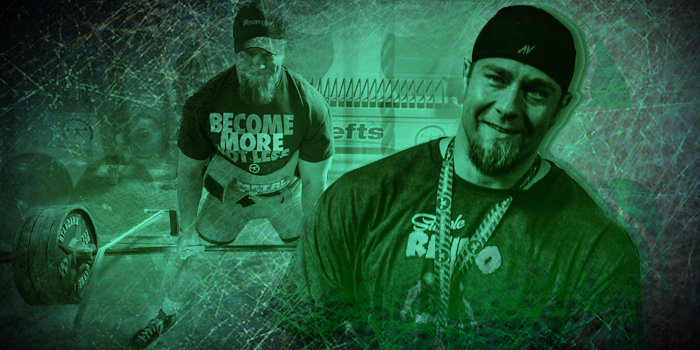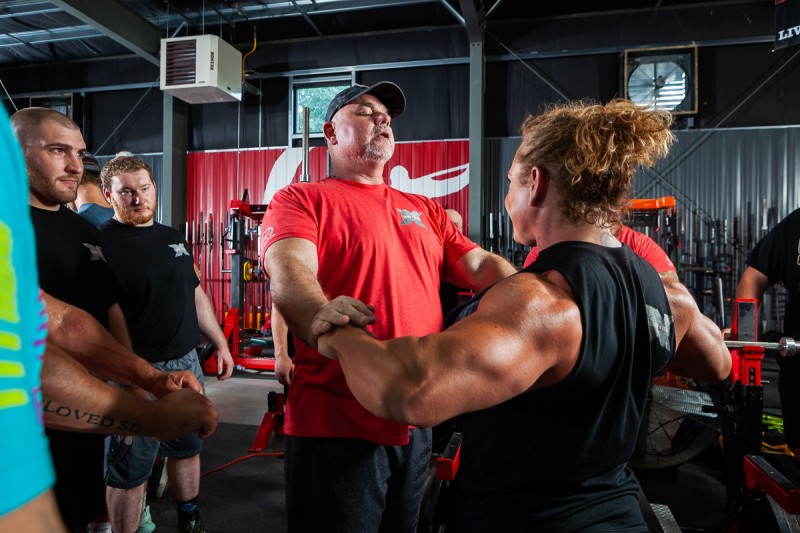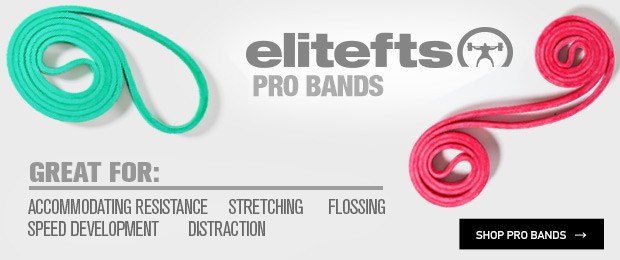
As coaches, managers, or parents, often we fail to get the results we want because of how we communicate. It doesn’t matter if we are working with athletes, powerlifters, kids, or co-workers. We, as communicators, have to do a better job so that we get the results we want. The more clearly we can communicate what we want, the better they can execute. Improving mental clutter will be key to getting better and faster results. This all starts with you. Being clear, setting up a growth mindset, and eliminating “no,” are just three ways to become a better communicator.
Mushy Language
Stand up and take a wide squat stance. How wide would that be? If you are a narrow-stanced squatter, a wide stance might be just outside shoulder width. If you squat with a stance outside shoulder width, you will take a wider stance than that. Wide can be interpreted many different ways based on your previous experiences. Telling someone to take a wide stance is an example of using mushy language.
RECENT: Solve Your Training Problems with Less Than $20
To eliminate this you must say exactly what you want. “Take a stance two inches wider than shoulder width apart” or “I want you to use a grip that is one inch inside the rings” clearly defines what you want done. If you want four work sets, then say it. A new client may interpret “four sets of ten” as four total sets. They might perform three of those as warm-ups, and they won’t get the results either of you want. Be clear with what you want, and the difference in results will amaze you.
Eliminate No, Can’t, and Don’t
The elimination of saying no, can’t, and don’t is essential to clear communication. If I say don’t think about a cake, the next thing you think about is cake. For someone who is new and learning a technique when their trainer is saying, “Don’t let your knees come in” only makes them focus on it even more. There is nothing to help them in the squat by saying “don’t _______.”
In the book The Law of Attraction, the author talks about the elimination of these words to produce positive thoughts and not focusing on the negative or bad things happening. Instead, the author recommends you ask yourself the question, “What do I want to happen?” When you answer that question, it takes a negative thought and turns it into a positive action.
I have also seen this referred to as positive counterfactuals. Counterfactuals are when you imagine changing the outcome of something that has happened. In this case, you want a positive outcome. A tackle gets beat to the corner by a defensive end. A coach yelling, “Don’t get beat to the corner!” over and over doesn’t work. It would be more productive to tell the tackle he needs to kick step faster, kick step more at an angle, come out of his stance faster, keep his head up, take a three-foot split instead of two (not mushy language), etc. Those are all positive actions. I am not saying you have to be happy and calm. The information exchanged needs to change to get a better end result.
Internal Locus of Control
The internal locus of control is where a chore becomes a choice. For an athlete or employee, they have certain requirements they must complete. For the athlete, strength workouts appear to be a chore. They just want to play their sport. Having to go lift is not a choice but a chore they are forced to complete.
Dave Tate once told a story about a running back he was training. On dynamic effort day, the athlete was not exploding like he could. Dave explained that this “chore” would make him more explosive and possibly give him an extra yard on each play. Over the course of a game, this could lead to 20 extra yards and a possible scholarship. Now that he bought into the chore, it switched from an internal locus of control to a choice. His explosiveness on each rep was improved.
I work in a business where time matters. Each extra step adds up. Over the course of the day, this could lead to 100 extra minutes of work. By cleaning as we go and using our best practices, we can cut a total of three man-hours over the course of the day across. Multiply this by our 1,000 locations, we can save nearly $18 million. This leads to more locations being opened and more opportunities for everyone to be promoted. Want to make more money? Get promoted by helping us open more stores. It isn’t always an easy task, but the guys who make the transition from chore to choice are often those who get promoted and make more money.
Growth Mindsets and Biases Toward Action
Praise and constructive criticism will need to be given. How that is expressed can help or hurt future situations. Young children, for example, often have a fixed mindset about certain aspects of their lives. For example, children often see themselves as either smart or dumb. They are fixed in one of those two positions. They do not see the work that Suzie puts into her school work to get good grades. She is just labeled as smart. As a coach or a manager, we can help change this with proper language.
If a child comes home from school with a good grade on a test we incorrectly say, “Bobby, you are so smart!” What happens when he comes home with a bad grade on the next test? The next test tells him that he is not smart because he did poorly. He needs to be applauded on his efforts and work put into that good grade. Not the end result. This would be a much better response: “Bobby, you did so well. I am proud of how hard you studied to get that good grade.” This praise has now set Bobby up to be more biased toward action. His action will take him from a fixed mindset to one where he can grow and improve with appropriate action.
Many coaches and managers are good at these three objectives without even knowing what they are called. Being aware of what we are saying and the directions being given helps us improve as communicators even more. Simple changes will go a long way with athletes, children, and employees. The results we get are directly related to the directions and coaching we give. Practice these techniques and watch your results change.
Recommended follow up reading: Mindset by Carol Dweck












1 Comment